In Memoriam
American Psychiatric Association honors the lives and legacies of its member psychiatrists and their contributions to mental health and psychiatry.
APA hosts member obituaries, submitted by contributors. View submitted obituaries for APA members below.
Members' Obituaries
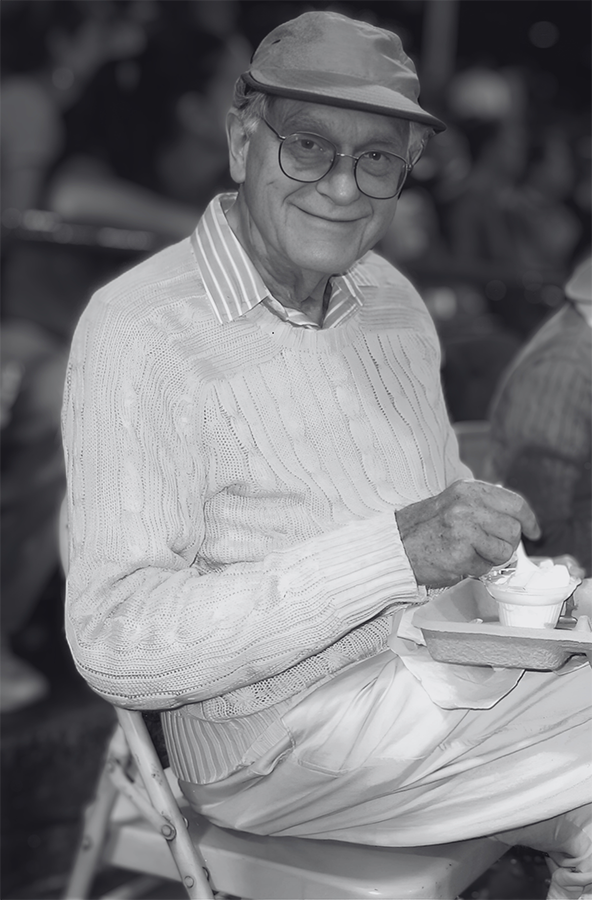
Dr. Paul Edward Sapir, 96, passed away peacefully on December 24, 2024, at his home in Providence, Rhode Island, surrounded by his family.
Born in Chicago to Professor Edward Sapir and Jean McClenaghan Sapir, Dr. Sapir was raised in New Haven, Connecticut, and New York City. He graduated from The Cambridge School of Weston before earning his degree magna cum laude from Harvard College in 1950. He continued his education at Harvard Medical School, graduating in 1959. Following an internship at Johns Hopkins Hospital, he trained in psychiatry at Massachusetts Mental Health Center and Peter Bent Brigham Hospital and completed psychoanalytic training at the New York Psychoanalytic Society & Institute.
He began his medical career on the staff of Montefiore Hospital in New York before relocating to Providence in 1974. There, he practiced psychotherapy and psychoanalysis until his retirement in 2011. He also served as a clinical faculty member (emeritus) at Brown Medical School. Dr. Sapir was a past president of the Rhode Island Psychiatric Association and a Distinguished Life Fellow of the American Psychiatric Association.
He contributed to several committees of the Boston Psychoanalytic Society and Institute and was a member of the American Psychoanalytic Association. He served on the Board of Medical Licensure and Discipline for the State of Rhode Island. He was a member of the Hope Club and Review Club.
An enthusiast of Baroque and Classical music, Dr. Sapir also enjoyed sailing in his younger years on Long Island Sound, Narragansett Bay, and Lake Winnipesaukee. His family farmhouse in Alton, New Hampshire, remained a cherished retreat throughout his life.
Dr. Sapir is survived by his wife of 60 years, Sylvia (Kutik); twin sons Timothy and Cass; daughter-in-law Elana Feldman; grandsons Milo and Evan Sapir; sisters-in-law Betty Sapir and Marcia Frifield; and many loving nieces, nephews, and extended family members. He was predeceased by his siblings H. Michael Sapir, Philip Sapir, Helen Larson, and J. David Sapir.
Obituary Submitted by Cass Sapir, Dr. Sapir's son, on January 1, 2025.
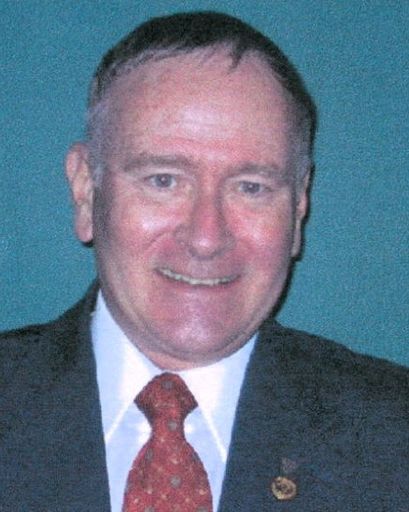
Entered into rest on Thursday, December 26, 2024, Charles Aloysius Meyer, Jr. M.D., S.F.O., 83, loving husband of Barbara J. Meyer.
Dr. Meyer was born in Philadelphia and has lived in Augusta, Georgia since 1976. He graduated from Villanova University in 1963 and Jefferson Medical University in 1967. Dr. Meyer was a retired Naval Captain, Medical Corps USNR having served 37 years. He was Chief of Psychiatry Department, Veterans Affairs Medical Center Augusta; Associate Professor, Department of Psychiatry and Health Behavior, Medical College of Georgia; Distinguished Life Fellow, American Psychiatric Association; Diplomate, American Board of Psychiatry and Neurology; Diplomate, American Board of Forensic Psychiatry; Board of Directors of the National Commission on Correctional Health Care and American Academy of Psychiatry and the Law. He served as chair of Correctional Medicine Committee, Medical Association of Georgia and on the Board of Directors of the Richmond County Medical Society.
A longtime member of the Augusta West Rotary, Dr. Meyer was a Will Watt and Paul Harris Fellow. He was a member of the USS Laffey DD-724 Association, having served as the last medical officer. The famous Destroyer is now at Patriots Point Naval and Maritime Museum in Charleston, S.C. Captain Meyer was an active member of St. Mary on the Hill Catholic Church, a professed member Secular Franciscan Order; member of 4th Degree Knights of Columbus and Ancient Order of Hibernians. He had the honor of being an Olympic Torchbearer in Augusta for the 1996 Atlanta games.
Dr. Meyer is survived by his wife of 57 years: Barbara Jane Meyer; son: Charles E. Meyer (Stacie) of Flagler Beach, Fla.; daughters: Katherine D. Podrazhansky (Michael) of Milton, Ga. and Eleanore Jane Tronco (John) of Belmont, N.C.; six grandchildren: Ava, Ben, Mark, and Jane Podrazhansky, John Jr. and Katherine Tronco; brother: Andre Meyer of Lexington, Va.; sister: Adrienne Tamalavich of Fort Lauderdale, Fla. and nephews: Joel and Adrian Meyer. He was preceded in death by his daughter: Elizabeth Rita Meyer; parents: Katherine D. Meyer and Charles A. Meyer, Sr. and brother: Donald C. Meyer of Villanova, Penn.
Obituary Submitted by Katherine D. (Meyer) Podrazhansky, Dr. Meyer's daughter, on December 30, 2024.
On March 1, 2023, Jack Edward Dodd, passed away suddenly and swiftly of a heart attack. His death was unexpected—a shock to all who knew him, as he was seemingly in robust health and had been a vibrant participant in his life and community. Dodd loved psychiatry and practiced in the field for over 40 years. He was his family's greatest supporter in many ways—inspiring his daughter to apply to a graduate psychiatric NP program.
After graduating from Tulane Medical school, Dodd worked first as an army psychiatrist in the 1980’s during the AIDs epidemic—when he tragically lost many beloved comrades. He trained for his residency at Letterman Army Medical Center where he had lunch with John Bowlby, the founder of attachment theory. He was chief resident in the psychiatric program he attended in San Francisco, Calif., and designed a program in the early 1980's as part of his residency research to teach lucid dreaming to veterans suffering from trauma. The program unfortunately never caught on, but he was never one to let the wind be knocked from his sails for long.
He loved therapy, hypnosis, ECT, Carl Jung, and all things psychiatry-related. He never believed medications alone were sufficient to address mental illness and its underlying causes in most clients. At the age of 75, his final year on this earth, he had lived through many seismic shifts in society, politics, and medicine, yet never grew stale or complacent in his professional practice. He worked in many settings, from inpatient psychiatric units to private practice, and most recently as a contractor for the state in a forensic setting. He was well-respected by his colleagues. He had a wealth of compassion for his clients remarked upon often by coworkers.
He was a young soul, always eager to learn and to share his knowledge with others. He was the most brilliant, but remained ever humble. He will be deeply missed.
Obituary Submitted by Suzanna Dodd, Dr. Dodd's daughter, on August 9, 2023.
William Hurt Sledge, M.D., died on December 20,, 2022, in Connecticut Hospice in Branford after a long illness. He was 77. At the time of his death he was the George D. and Esther S. Gross Emeritus Professor of Psychiatry at Yale University.
A statement released by Yale University following his death noted that Sledge was a transformative educational leader for the department of psychiatry. He led the Yale Psychiatry Residency Program, initially as director of graduate education (1980–1986) and then as associate chair for education (1990–1996).
"Most remember him for his over 20-year service as medical director of Yale New Haven Hospital Psychiatry (1996–2018).,”’ according to the press release. “During this period, he played an important role in the consolidation of Yale New Haven Hospital Psychiatry and the Yale Psychiatric Institute. He then served as medical director of the new Yale New Haven Psychiatric Hospital. In this capacity, he oversaw the integration of psychiatry at the Hospital of Saint Raphael, the initiation of the Interventional Psychiatry Program, and the rebranding and expansion of Psychological Medicine Services. He drew national attention for the pioneering Behavioral Intervention Team, an initiative that embeds mental health clinicians on inpatient medical and surgical teams."
John Krystal, M.D., who is the Robert L. McNeil, Jr. Professor and Chair of Psychiatry at Yale, shared with Psychiatric News comments from an open letter he wrote to the department of psychiatry following Sledge’s death: "It is hard to capture William succinctly because of the breadth of his qualities and accomplishments. He was a respected psychiatrist and psychoanalyst, a dedicated psychiatric educator, an innovative clinical leader, and an impactful clinical investigator. He was also brilliant, courageous, articulate, and open-minded; a valued mentor, treasured colleague, and a loyal friend. His optimism and good humor made it fun to work with him on the most challenging of tasks. William and his wife, Betsy, were a special couple who enlivened our community."
Obituary Submitted on December 23, 2022.
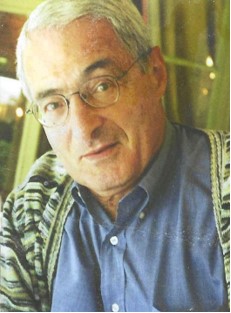
David Rudolph Kessler, M.D., was born in Brooklyn, N.Y. He was the only child of Polish Jews, who emigrated to the United States shortly after World War I. He died in San Francisco after a long struggle with end-stage renal disease and other medical conditions.
Dr. Kessler attended public schools in Brooklyn. Future political success was heralded by his election as student body president in junior high school. After graduation from Brooklyn College, he attended Yale Medical School, receiving his M.D. degree in 1955. Following three years with the United States Public Health Service, he returned to Yale for psychiatric training. He helped open one of the nation’s first psychiatric units in an American general hospital.
In 1962 Dr. Kessler moved to San Francisco, becoming a full-time staff member at the Langley Porter Psychiatric Institute, where he subsequently helped to train many of the psychiatrists now practicing in the Bay Area. He retired in 1986 as a clinical professor of psychiatry at the University of California, San Francisco. He was the author of several clinical papers and the co-author of an early textbook on marital and family therapy. For over 50 years he conducted a part-time forensic psychiatric practice and was a consultant to the San Francisco Superior Court. He was a fellow of APA.
In 1978, inspired by Harvey Milk, he came out publicly as gay during a Langley Porter Institute grand round, the first such openly gay faculty member on the campus. Dr. Kessler had other notable firsts, including being the first elected president of the nation’s first gay doctor’s group, the Bay Area Physicians for Human Right, (1978 to 1980). Later he was the first elected president of the national Gay Caucus of APA (1980-82). This later became the Association of Gay and Lesbian Psychiatrists (AGLP). He served on several boards, including the National Gay Task Force and the NAMES Project (the AIDS quilt). In 1991 he endowed an annual lectureship on gay and lesbian issues at the Center for Lesbian and Gay Studies (CLAGS) at the Graduate School of the City University of New York.
Dr. Kessler enjoyed all things Italian and traveled extensively throughout the Italian peninsula. Dr. Kessler maintained, “I must have been Italian in a former life.” Music was his avocation. He took piano lessons on and off for years, saying that he was “studying to be a prodigy.” He amassed an extensive collection of music CDs, most of which he managed to listen to.
Dr. Kessler’s partner, Steven Del Re, died from AIDS in 1986. Several of his close friends also died during the early years of the AIDS epidemic, but he maintained warm relationships with a small circle of intimate associates. Dr. Kessler considered himself to be exceedingly fortunate. Most importantly, he referred to his having had the opportunity to contribute to the struggle for gay rights.
Obituary Submitted by Demetri John Polites, M.D., Dr. Kessler's long-term friend and colleague (and APA member), on February 10, 2023.
Rekha Ranade-Kapur, M.D., passed away on July 20, 2022, in her home state of Connecticut.
Dr. Ranade-Kapur was a practicing physician for more than 35 years. She worked in a solo private practice in Connecticut over the last 16 years and previously participated in a group practice at the Institute of Living in Hartford, Conn.
A dedicated professional, she took care of her patients selflessly and compassionately. Her passing was followed by an outpouring of messages of sympathy and sadness by her patients, friends, and professional colleagues.
Dr. Ranade-Kapur is survived by her loving husband, Raj Kapur, who lost his life partner, soulmate, best friend, and also his personal doctor, with whom Dr. Ranade-Kapur shared love and life together.
She was an active member of APA as well as various other professional local and national organizations.
Obituary Submitted by Raj Kapur, Dr. Ranade-Kapur’s husband, on December 8, 2022.
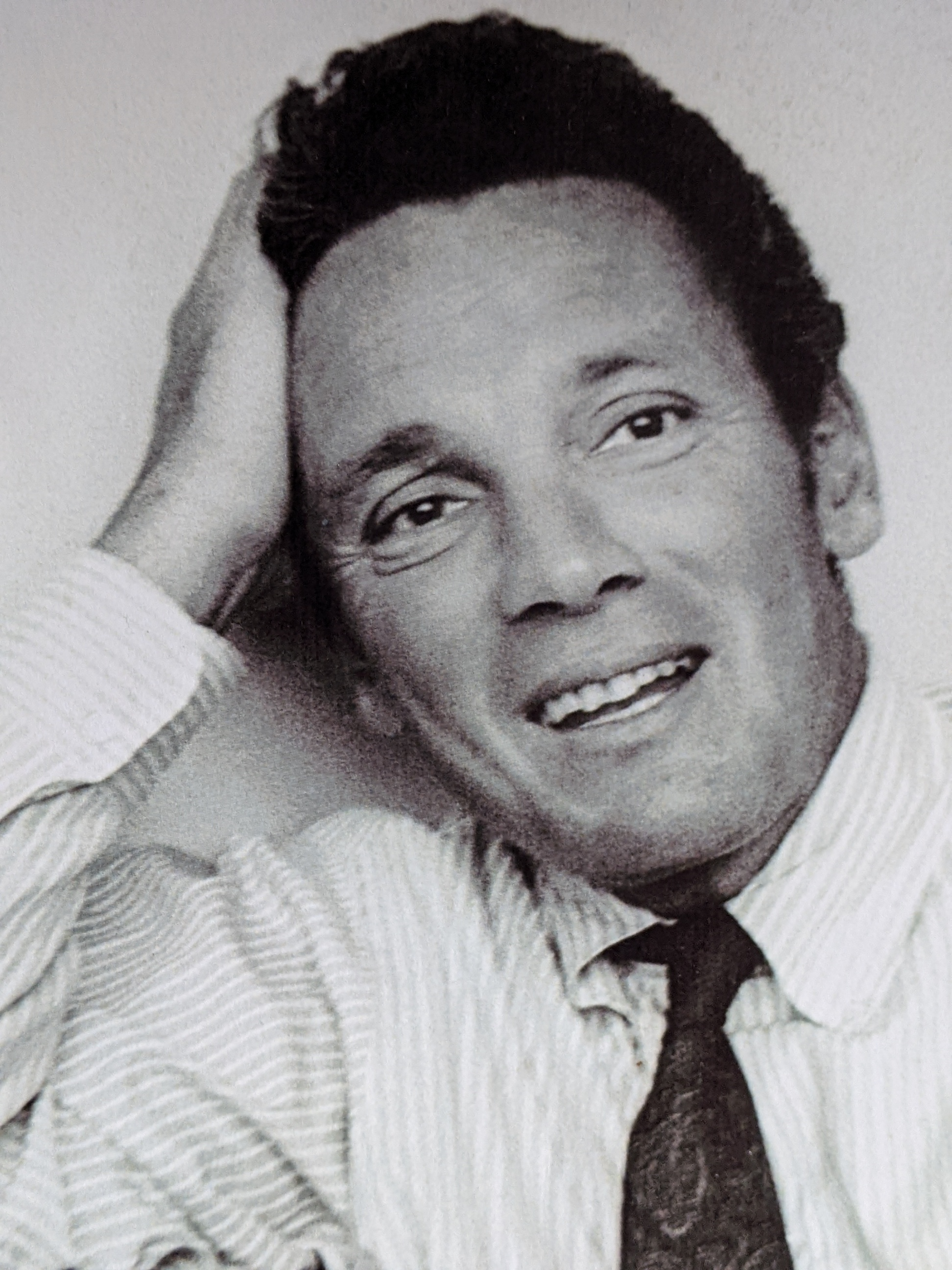
Gerry enjoyed many successes over his lifetime: earning a B.A. as well as an M.A. in Statistics from Cornell University (where he was also selected, amongst other university students, to participate in a clandestine project during World War II to decipher Nazi codes), an M.D. from New York University College of Medicine, a Rotating Internship at Cedars of Lebanon Hospital in Los Angeles, followed by psychiatric and psychoanalytic training and a staff position at the Menninger School for Psychiatry, Topeka, Kansas, and military service as Chief of the Mental Health Clinic at Fort Jackson, South Carolina.
He moved with his wife (Jan Furst Aronson) and their three children (Lisa, Ellen, and Ruth) to Los Angeles in 1955, where he established a private practice in psychiatry. Gerry was amongst the group of ‘Menninger Transfers’ admitted to the Los Angeles Psychoanalytic Society and Institute (LAPSI), where he completed his psychoanalytic training in 1961. He served as a Senior Faculty Member and supervisor of psychoanalytic candidates as well as being a sought-after discussant and presenter of psychoanalytic content throughout his career at his home institute (renamed New Center for Psychoanalysis).
Gerry lent his intellectual might to psychoanalytic study groups and his courses on Sigmund Freud’s The Interpretation of Dreams and technical aspects of the psychoanalytic theory were highly valued. He continued private practice in psychiatry and psychoanalysis and supervised psychoanalytic candidates into his 90s. In addition to his affiliation with LAPSI, Gerry served as a Clinical Instructor in the Department of Psychiatry at the UCLA School of Medicine, Los Angeles; Consultant to Camarillo and Patton State Hospitals; and Consultant Psychiatrist at The RAND Corporation Social Science Division, studying the behavioral aspects of decision making as well as law enforcement interventions during domestic disputes. He was a Member of Phi Beta Kappa and a Diplomate of the National Board of Examiners and American Board of Psychiatry and Neurology. He belonged to the following professional societies: Los Angeles Psychoanalytic Institute, Southern California Psychiatric Society and the American Psychiatric, American Psychoanalytic, and International Psychoanalytic Associations.
Gerry was a beloved Husband, Father, and Grandfather. Following a 2-week courtship, he married his wife of 70 years, Jan Furst Aronson (who predeceased him in 2018). His daughters (Lisa, Ellen, Ruth)and Gerry and Jan’s grandchildren, Emily and Joshua Kneeter, continue to live in California. Gerry and Jan live on in their hearts and memories.
Obituary Submitted by Lisa Aronson, Dr. Aronson's daughter, on September 22, 2021.
K-Lynn Paul, M.D., 84, died on November 26, 2021, in Sioux Falls, S.D.
Dr. Paul was born June 14, 1937, in Fergus Falls, Minn., to Lynn and Lettie (Ririe) Paul. After graduating from Fergus Falls High School in 1955, he attended Brigham Young University in Provo, Utah, and served a mission for the Church of Jesus Christ of Latter-day Saints in the Pacific Northwest. Returning to Brigham Young University, he graduated in 1963 and then attended the University of Minnesota Medical School. After graduating in 1967, he did his residency training in psychiatry at the Kansas University Medical School and served in the U.S. Army Medical Corp. at the rank of major.
Following his military experience, he moved to Oklahoma City, Okla., where he worked at the Veterans Administration Hospital and was on the faculty of the University of Oklahoma Medical School. Moving to South Dakota in 1986, he became the first residency training director in psychiatry for the University of South Dakota School of Medicine, a position he held for 18 and a half years until his retirement in 2005. He also worked at Southeastern Behavioral Health Center and Avera McKennan Hospital.
Dr. Paul married Carla Blake in 1965, and they had six children, Richard (Maria) Paul, William (Rebecca) Paul, Robert (Jennifer) Paul, John (Sarah) Paul, Kathryn Starling, and Eileen (Richard) Wingfield. Mrs. Paul preceded Dr. Paul in death in 1994. Dr. Paul married Karen Knock in 1996 and became stepfather to Kim (Brent) Straatmeyer. He is survived by his beloved wife, six children, one stepdaughter, 32 grandchildren, and four great-grandchildren.
Obituary Submitted by Robert Paul, Dr. Paul's son, December 6, 2021.
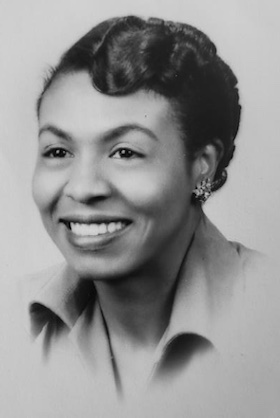
Trailblazing physician and psychiatrist, community advocate, arts patron and entrepreneur, mentor and beloved matriarch, Shirley Jenkins-Phelps, M.D., died peacefully in her sleep on August 26, 2021, in California.
She was born to Alethia (Blakeney) Jenkins and Joseph Jenkins on June 29, 1924, in Detroit, Mich. Her parents who were a part of the Great Migration out of the Jim Crow South. She came of age in an era when few could imagine a Black girl becoming a scholar, scientist, or medical doctor; gender discrimination was also the norm. She overcame these obstacles to achieve personal and professional goals.
She earned a B.A. degree from Fisk University in 1945 with honor. She earned an M.S. degree from Harvard University (where she earlier had completed a National Institutes of Health predoctoral research fellowship in microbiology) in 1952; and an M.D. degree from Wayne State University School of Medicine in 1958. She completed her internship at San Diego County General Hospital and her psychiatric residency at San Diego’s Community Mental Health Hospital and Clinics. She was board certified in psychiatry and forensic psychiatry.
In 1948, Shirley Jenkins married the Rev. Grandison M. Phelps Jr. of Greensboro, N.C., and they raised four children. The couple divorced in 1979.
Dr. Jenkins-Phelps was San Diego County’s first African American woman physician and the county’s first African American psychiatrist. From 1959 to 1964, she was a general physician on staff at San Diego County General Hospital (now UCSD Medical Center). From 1965 to 1970, she worked as a staff physician and later as assistant medical director at Edgemoor Geriatric Hospital. It was during this time that she became interested in treating mental disorders. After specialized training in psychiatry, Dr. Jenkins-Phelps established a private practice in general psychiatry in 1973. Always mindful of unmet health needs in San Diego’s communities of color, she provided consultations at Paradise Valley Hospital and the Community Hospital of San Diego and volunteered in mental health clinics across the region.
In 1965, the Superintendent of San Diego City Schools appointed Dr. Jenkins-Phelps to serve as vice-chair of the Citizens Committee on Equal Education Opportunities. The committee was tasked to investigate the effect of racial imbalance in San Diego schools on equality of opportunity for San Diego children. Dr. Jenkins-Phelps co-wrote the committee’s desegregation proposal to San Diego City Schools’ Board of Education. After failing to implement any of the committee’s 39 recommendations, the school board was sued by several parents (Carlin et al v. Board of Education). The ACLU argued the class action lawsuit on behalf of the plaintiffs.
Dr. Jenkins-Phelps returned to Michigan in 1979, making her home in Ann Arbor. From 1979 to 1987, she served as director of Women’s Inpatient Unit for the Michigan Center for Forensic Psychiatry. She was also a consultant to the Michigan Department of Education for the state Department of Health and Human Services. From 1987 to 1994, she was a consultant with the Health Care Finance Administration, U.S. Department of Health and Human Services, and served as assistant director for psychiatry at the Michigan Department of Corrections from 1987 to 1989.
From 1990 to 2000, Dr. Jenkins-Phelps was a psychiatric medical consultant with the Detroit-Wayne County Community Mental Health Agency, Division of Clinical and Program Services. Many of her policies remain in force today. She also provided forensic psychiatric evaluations of complainants and defendants involved in civil and criminal litigation, prepared reports, and gave expert testimony as a private consultant. She moved back to San Diego County in 2001, and until her retirement in 2006 at age 82, she worked part time as a psychiatric medical consultant to the California Department of Social Services.
She was an avid traveler and was passionate about the many different expressions of Black identity in the literary, visual, and performing arts from across the African diaspora. She enjoyed live theater especially and especially the performances of her actor son. She also gave her time and support to causes and organizations that reflected her commitment to public service and her interest in African American health, history, education, social equity, arts, and culture.
She was proud to be a charter member of the Smithsonian National Museum of African American History and Culture. Unable to attend the 2016 opening, she made a special trip to Washington, D.C., to tour the museum, her last outing before becoming too frail to travel.
Dr. Jenkins-Phelps is survived by her children, Grandison Madison III (Rosetta), Jonathan deKoven, Cheryl Alethia and Joseph Caspar Phelps; grandchildren Grandison Madison Phelps, IV (Che’Nelle), Christian Glenn Johnson (LaRamie), Joseph Caspar Phelps Jr., and Temeekia Robins; great-grandchildren Arielle Brittany Pergerson, Malakai Nolen, Gavin Mateo Robins, Kamren Dewayne, Raela Sage Johnson, and Santōsha Maleya Phelps; nephews, cousins, and extended family; and friends.
Obituary Submitted by Michele Reid, M.D., Dr. Jenkins-Phelp’s colleague, October 7, 2021.
Simon Epstein, M.D., 87, passed away on September 20, 2021, at Stamford Hospital. He attended Yale University and graduated from New York University School of Medicine in 1960. He specialized in child and adolescent psychiatry and had a particular interest in treating adults and children for attention-deficit/hyperactivity disorder.
In addition to his private practice, Dr. Epstein was associate medical director of the Child Guidance Center of Southern Connecticut, where he worked for 52 years, and was on the staff of Stamford Hospital. He was a past president of the Connecticut Psychiatric Society and former editor of the Connecticut Psychiatric Society newsletter and served on the Professional Advisory Board of the Connecticut Association for Children and Adults With Learning Disabilities. He received numerous awards and recognitions, including the designation of Distinguished Fellow of the American Psychiatric Association.
Dr. Epstein was devoted to his family, with a kind and gentle spirit and wry sense of humor, and always looked for the upside in life. He was an antique collector, scrimshaw artist, mentor, friend, colleague, and an ever-optimistic Mets fan.
In addition to his daughters, Sharon Epstein and Joanne Owens Simon, Dr. Epstein is survived by his brother, Abram, and his two sons-in-law, Edward Dzubak and Douglas Owens. His beloved wife, Patricia Marlowe Epstein, preceded him in death.
Obituary Submitted by Sharon Epstein, Dr. Epstein’s daughter, September 24, 2021.
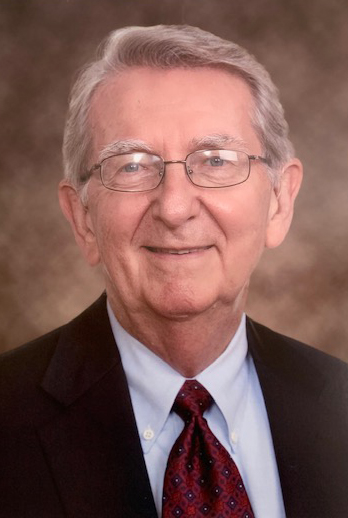
Sherman G. Franz, M.D., 83, passed away June 19, 2021, on the 61st anniversary of his wedding to his beloved wife, Jacqueline. He was at home surrounded by family, including Jacqueline, his three sons, and his grandchildren.
Dr. Franz was born August 6, 1937, in Newton, Kan., the son of the Rev. Peter E. Franz and Martha Martens Franz. He graduated from Scottsburg High School and Wabash College and received his M.D. from Indiana University and earned a master’s in medical management from Tulane University later in his career. He served as a major in the U.S. Air Force from 1967 to 1970. Dr. Franz practiced psychiatry in Columbus, Ind., for over 50 years. He served as vice president and chief medical officer at Columbus Regional Hospital and as medical director of behavioral health at SIHO and at the Stress Center of Columbus Regional Hospital. For several years, he served as a clinical professor of psychiatry at Indiana University School of Medicine and taught family medicine residents at Methodist Hospital. He was a past president of the Indiana Psychiatric Society.
He devoted his life to peace and social justice in the communities he served and in the world at large. An avid traveler, he also lived and practiced medicine in Libya, Australia, and New Zealand. A co-founder of the first halfway house for people with mental illness in Columbus, Dr. Franz also helped found Our Hospice of South Central Indiana and Volunteers in Medicine of Columbus. He served on the boards of the Bartholomew County Mental Health Association, Bartholomew County School Foundation, Bartholomew County Substance Abuse Council, and Volunteers in Medicine. Additionally, he served on the Healthy Communities Council and as deacon and elder at First Presbyterian Church of Columbus.
Dr. Franz is survived by his wife, Jacqueline Darrah Franz; his sons Sherman Edward (Maggie Magee) of Montrose, Colo.; Stephen James (Lisa Szymanski) of Spencer, Ind.; Michael Andrew (Carolyn) of Bend, Ore.; grandchildren Jonathon, David, Megan, Lauren, Elliott, and Madison; great-grandchildren Davian and Myla; and several nieces and nephews. He was preceded in death by his parents and two brothers, Loren and John.
Obituary Submitted by Michael A. Franz, M.D., Dr. Franz’s son, September 21, 2021.
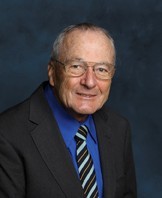
John P. “Seán” Callan, M.D., 82, died August 26, 2021, surrounded by his wife, Clair, and four children after developing COVID-19 pneumonia. The only son of Patrick and Bridget (Meade) Callan, Dr. Callan was born in Dublin and married Clair Mills, also a physician, in Dublin in 1964. They immigrated to the United States in 1965 after he earned his medical degree from the National University of Ireland (University College Dublin). A man of varied interests and a wide range of skills, he lived in four states, initially settling with his family in Wethersfield, Conn.
Dr. Callan first worked at Connecticut Valley Hospital in the psychiatry residency program and had a private practice in West Hartford. He later became the medical director of the psychiatric clinic at St. Francis Hospital and Medical Center and Blue Hills Hospital, both in Hartford. In 1979, Dr. Callan was selected as the second Morris Fishbein medical journalism fellow at the Journal of the American Medical Association. Subsequently, Dr. Callan became a contributing editor of the journal and medical director of “Medicine Today,” the AMA’s weekly news program on cable television.
Dr. Callan and his family moved to Illinois, where he remained involved with clinical medicine as medical director of Family Services Community Mental Health Center in McHenry. He continued in that role until he became a hospital surveyor for the Joint Commission on Accreditation of Healthcare Organizations (now The Joint Commission), a position he held for more than a quarter of a century. An excellent teacher, Dr. Callan was an assistant clinical professor of psychiatry at the University of Connecticut School of Medicine and Chicago Medical School. He was intrigued by all aspects of psychiatry, and especially the causes of schizophrenia. He cared deeply for his patients and made a significant difference in many of their lives.
Dr. Callan was an officer in the U.S. Army and served as chief of mental hygiene at Fort Leonard Wood, Mo., for two years during the Vietnam War. Subsequently, he became a flight surgeon in the U.S. Air Force Reserve, saw active duty during Operation Desert Storm, and retired as a colonel.
While in Connecticut, Dr. Callan obtained his pilot’s license and kept it current throughout his life. He spent many happy hours soaring above the neighborhood. Dr. Callan, his wife, and their family were members of the Pine Acres Swim and Tennis Club, and many a summer the Callans would be found there from open to close. Dr. Callan continued to play tennis well into his 80s and always enjoyed a good competitive game.
Dr. Callan and his wife spent most of the last decade in Naples, Fla., and once again immersed themselves in their community, particularly at the Wyndemere Country Club. He became a more active golfer in Florida, less because he liked it than because he loved being with his wife, an avid golfer since her teens. He also joined the Civil Air Patrol in Naples for a brief time.
Dr. Callan was a talented writer who wrote several Irish-themed books and plays exploring facets of ethical conflict. Four of his plays were produced (“The Day Patient,” “The Day Room,” “The Sixteenth Man,” and “Hearthstone”), and he wrote The Physician, Your Guide to Mental Help and Courage and Country, a biography of 19th-century Irish American Gen. James Shields. Dr. Callan was a U.S. correspondent for the Irish Medical Times for nearly 30 years and wrote a two-part autobiography, The Road Before Me Began Behind.
Dr. Callan is survived by his four children, Eoin (Geneva, Douglassville, Pa.), Grainne (Norm, Sunnyvale, Calif.), Colm (Julie, Palo Alto, Calif.), and Maeve (Seth, Des Moines, Iowa). He is also survived by his sister Bernadette Deane (John, Howth, Ireland) grandchildren Seana, Rhylee, Kylie, Ashlyn, Hailey, Finnian, and Hunter; nephews Jonathan and Richard Deane (Dublin, Ireland) and David Murray (Mikaela, Northampshire, UK); and niece Diane Murray (London, UK). His sister Anne Murray died in Paphos, Cyprus, the day after Dr. Callan’s death.
Obituary Submitted by Fuller Funeral Home, on September 7, 2021.
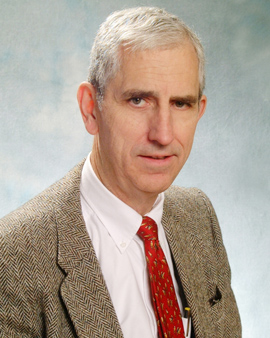
Bryce Templeton, M.D., M.Ed., passed away on August 7, 2021. He was an emeritus professor of psychiatry at Drexel University College of Medicine and a Distinguished Life Fellow of APA and the American College of Psychiatrists.
Dr. Templeton received his M.D. from Case Western Reserve and completed his psychiatric residency at the University of North Carolina at Chapel Hill. Following obligated service with the U.S. Public Health Service (USPHS), he began his academic career at the University of Pittsburgh School of Medicine on the psychiatric consultation-liaison service. However, in 1968, his interest in medical student education led him to a USPHS fellowship program and a master’s degree in medical education at the University of Illinois. This had a profound impact on his subsequent career.
He joined the National Board of Medical Examiners (NBME) and developed a sustained interest in the evaluation of trainee clinical skills. During his 16 years at the NBME, Dr. Templeton worked with the interdisciplinary committees of various specialty boards to develop in-house examinations and rose to be director of the NBME Part II Examination. In 1985, Dr. Templeton decided to become intimately involved in the direct teaching of medical students and was recruited to the Thomas Jefferson College of Medicine as director of medical student education in psychiatry. This focus eventually brought him to the Drexel University College of Medicine, where he helped establish new affiliations for training the large student body and developed systems through the internet that allowed the clerkship programs to have comparability across sites.
Dr. Templeton’s research in medical education on the use of medical record audits in assessing trainee performance and methods for assessing physician trainee medical interviewing skills, utilizing the use of data checklists and interaction analysis, had significant impact on examination strategies for the United States Medical Licensing Exam, Federation Licensing Examination, and Educational Commission for Foreign Medical Graduates (ECFMG) examinations.
Throughout the 1970s and the 1980s, Dr. Templeton served on and provided leadership to APA’s Committee on Graduate Education, the Council of Medical Education and Career Development, the Psychiatric Knowledge and Skills Self-Assessment Program, the Philadelphia component of the Professional Standards Review Organization, and the Clinical Skills Assessment Test Development Committee of the ECFMG.
Dr. Templeton received multiple awards beginning with an election to the Alpha Omega Alpha Honor Medical Society in medical school and culminating with the well-deserved Vestermark Psychiatry Educator Award in 2012. After an enormous personal tragedy in which his son was killed in a car accident with a drunk driver, Dr. Templeton became extensively involved in community education directed at reducing the number of people driving while under the influence of substances. His extension of this work into the medical education arena was evident through his impact on the medical students and residents who have started advocating for substance-free drivers.
He began transitioning to retirement in 2003 and, over the next eight years, mentored junior colleagues to be able to fully turn over the reins to a successor even as he continued to be a valuable guide. Would that all faculty approaching retirement seek to maintain continuity and quality and do it with such grace and thoughtfulness as Dr. Templeton! He will be missed.
Obituary Submitted by Wei Du, M.D., M.S., colleague, on August 18, 2021.
Child psychiatrist and human rights activist Carola Eisenberg, M.D., died March 11. She was 103.
With five other doctors, Eisenberg founded Physicians for Human Rights. The organization grew to have an international impact, documenting torture and abuses around the globe and advocating for individuals seeking asylum in the United States. She was active in the organization into her 90s as chair of its Asylum Committee.
Eisenberg was a pioneer among women in medicine, becoming the first woman dean of students at MIT and dean of student affairs at Harvard Medical School. In 1989, the New England Journal published an article she wrote, “Medicine Is No Longer a Man’s Profession.”
“Full justice for women requires that they have an equal opportunity for professional success after acceptance to medical school,” she wrote. “The playing field is hardly level if only superwomen, rather than most women, can satisfy the needs of their families and meet their professional goals.”
She was born Carolina Blitzman in Bueno Aires on September 15, 1917. After receiving her medical degree from the University of Buenos Aires and taking her psychiatric training at the Hospicio De Las Mercedes, she emigrated to the United States—where she changed her name to Carola—and became a fellow in child psychiatry at the Johns Hopkins University School of Medicine.
She married Manfred Guttmacher, M.D., a forensic psychiatrist who died in 1966. She subsequently married psychiatrist Leon Eisenberg, M.D., who died in 2009. She is survived by two sons—both physicians—Alan Guttmacher, M.D., and Laurence Guttmacher, M.D.; four grandchildren; and two great-grandchildren.
In an obituary in the Boston Globe, past APA President Carol Nadelson, M.D., a friend of Eisenberg’s, recalled: “She was a great, generous, open, friendly caring human being. She conquered a lot of adversity in her life and was always able to stand up to it with a smile.”
Obituary Submitted by Psychiatric News on March 25, 2021.
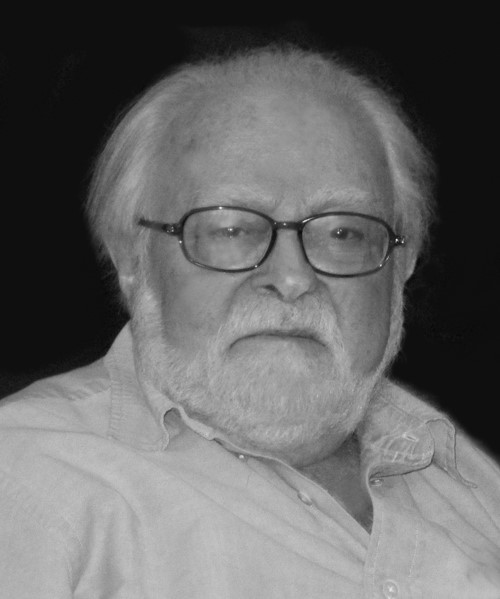
Samuel Weiss, M.D., a prominent Chicago psychiatrist and child psychoanalyst, died December 27, 2020, at age 97 after a nine-day valiant battle with COVID-19 at Glenbrook Hospital. Full of life, he was still treating a handful of longtime patients and mentoring an analyst-in-training.
Dr. Weiss served several terms on the Chicago Psychoanalytic Institute (CPI) board was president of the Chicago Psychoanalytic Society for the 1991-1992 term. He was also a longtime member of APA. Only a few weeks before his death, he was guest lecturer for the CPI Zoom class "Working With Parents."
In February 1943, this young man from Brownsville, Brooklyn, was drafted into the U.S. Army and attended various universities on the G.I. Bill. He received his medical degree in 1948 from the University of Illinois College of Medicine, completed his internship at Michael Reese Hospital and Medical Center, and psychiatry residency at the Michael Reese Psychosomatic and Psychiatric Institute. He went into private practice in June 1952. Shortly after marrying the love of his life, Judith Speiser, on May 17, 1953, the couple shipped off to Port Deposit, Md., where Dr. Weiss served two years in the U.S. Navy as the base psychiatrist.
Dr. Weiss was a wine and chocolate connoisseur, passionate art collector, voracious reader, avid photographer, lifelong member of the Art Institute of Chicago, and a season ticket subscriber and patron of the Chicago Symphony Orchestra. He was a witty raconteur who enchanted his family, friends, and colleagues with an amazing talent for creative storytelling. Within the corners of each person's private and public canvas lies his or her masterpiece.
A Lincolnwood resident since 1959, Dr. Weiss is survived by his private masterpieces—Judy, his wife of 67 years; daughters Debra, Betsy (m. Jeff Swim), and Janet (m. Steve Merola); and three grandchildren, Samantha, Katie, and Danny.
Obituary Submitted by Betsy Weiss van Die, Dr. Weiss's daughter, on March 1, 2021.
Hagop S. Akiskal, M.D., a professor of psychiatry at the University of California, San Diego (UCSD), and an internationally recognized expert on bipolar disorder, died on January 20, 2021. He was 77.
Dr. Akiskal had been senior science adviser at the National Institute of Mental Health (NIMH) from 1990 to 1994 under then-NIMH Director Lewis Judd, M.D. He helped to develop a detailed classification of presentations within the bipolar spectrum and identified a close correlation between some personality disorders, and cyclothymia. His work also included studies of the treatment of bipolar spectrum and borderline personality disorder.
Friend and UCSD colleague Dilip Jeste, M.D., a past president of APA, told Psychiatric News, "He had a huge influence on our diagnostic system for bipolar disorder and approach to the management of these patients. His work was initially considered controversial but is now seen as visionary."
Dr. Akiskal was the 2005 recipient of APA's George Tarjan Award. His Annual Meeting lecture that year was titled "Temperament, Mood Disorder and Human Nature." Named after APA's first international medical graduate (IMG) president, the George Tarjan Award, established in 1992, recognizes a physician who has made significant contributions to the enhancement of the integration of IMGs into American psychiatry.
Born in Lebanon to Armenian parents, Dr. Akiskal obtained his medical degree from the American University of Beirut in 1969 and his psychiatric training at the University of Wisconsin, Madison. He was a professor of psychiatry and pharmacology at the University of Tennessee from 1972 to 1990) before being recruited as senior science advisor at NIMH.
After leaving NIMH, Dr. Akiskal came to UCSD. Dr. Jeste noted that in recognition of Dr. Akiskal's fundamental contributions to mental health and mood disorders in particular, the UCSD Department of Psychiatry has established, in his honor, the Hagop Akiskal Mood Disorders Memorial Fund. The fund will support research, education, and clinical care of people with mood disorders.
Obituary Submitted by: Psychiatric News on March 3, 2021.
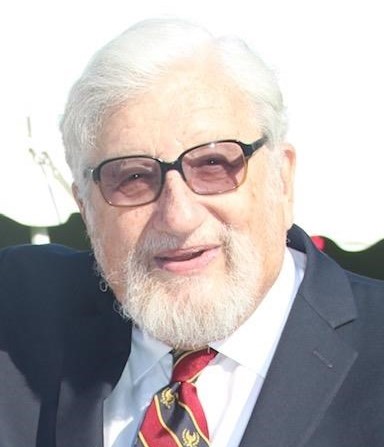
Arthur T. Meyerson, M.D., a former president of the New York County Psychiatric Society and a distinguished life fellow of APA, died January 27, 2021, in New York City, N.Y. He was 84.
A lifelong New Yorker, he grew up on the Lower East Side of Manhattan and graduated from Stuyvesant High School, Columbia College, and Columbia University College of Physicians and Surgeons.
Dr. Meyerson was a fierce advocate for people with serious mental illness and for community psychiatry. In April 1983, Meyerson told the Senate Committee on Aging that people with mental illness were being forced off Social Security Disability Insurance (SSDI) "in record numbers and without adequate evidence and examination." He told the committee, "In APA's opinion, there is clearly prejudice on the part of the Social Security Administration toward the mentally ill."
The following year he appeared before the Senate Finance Committee as an APA representative to testify in support of a bill to reform the way claims for mental illness were reviewed under SSDI.
At that time of his testimony, he was a clinical professor of psychiatry at Mt. Sinai Hospital in New York. He went on to be the chair of psychiatry and neurology at Hahnemann University School of Medicine in Philadelphia and professor and vice chair of University Behavioral Health Care at the University of Medicine and Dentistry of New Jersey. Meyerson was also active in psychiatric education and had been an examiner for the American Board of Psychiatry and Neurology, where he met his wife Carol Bernstein, M.D., who would later serve as president of APA.
Following the attacks on the World Trade Center in September 2001, he served as the clinical director for Disaster Psychiatry Outreach at "ground zero," providing free therapy to first responders, victims of the attacks, and their families.
Dr. Meyerson had a keen interest in the arts, as well as science, history, and politics and enjoyed in-depth—and opinionated—conversations with friends and family. He was a lover of opera and was himself a singer in choruses and glee clubs.
He is survived by his wife, Carol; his daughter, Samantha Meyerson; and two children from his first marriage, Peter Meyerson and Jessica Meyerson; and several grandchildren. He will be missed.
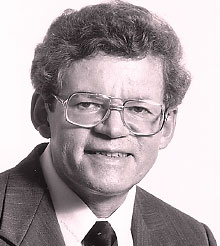
Rodrigo Muñoz, M.D., the 127th president of APA, died November 28, 2020. He was 81 years old.
Muñoz, who served as president for the 1998-1999 term, was the first Hispanic president of APA. He was born in 1939 in Popayan, Colombia. He graduated from the Universidad del Cauca in 1963 and did his initial psychiatric training in the Antioquia Mental Hospital before coming to the United States where he completed his training at Washington University Hospital in St. Louis.
In an article in the
In 1970, Muñoz and his family moved to Sheboygan, Wis., where in addition to a private practice he directed an alcohol and substance abuse program and a geriatric program. In 1974, his first wife died suddenly, and Muñoz and his three children—then aged 9, 5, and 2—moved to California.
At the University of California, San Diego (UCSD), Muñoz was a clinical professor of psychiatry and received the Distinguished Clinical Teacher Award. He also received the Outstanding Mentorship Award from the California Medical Students Association.
Past APA President Dilip Jeste, M.D., a distinguished professor of psychiatry and neuroscience at UCSD, said Muñoz had legions of admirers at the institution. "He was a dear friend and mentor for many people at UCSD," Jeste said. "For me, he was not just a supporter but also a role model as the APA president. We have lost a trailblazer."
Close friend and colleague Renato Alarcon, M.D., M.P.H., emeritus professor and consultant in psychiatry at Mayo Clinic and its medical school in Rochester, Minn., told Psychiatric News that Muñoz’s active involvement with APA started in the late 1970s. "His trajectory in our institution allowed him to thoroughly display his leadership and organizational talents as well as his profound faith in human possibilities guided by principles of integrity, loyalty, social justice, determination, and dignity."
He added, "Rodrigo Muñoz was not only a great psychiatrist but also a fundamentally compassionate human being. He loved to share his knowledge, talents, and constructive actions. He believed in genuinely humanistic values, in the honest combination of scientific zeal and artistic sensibility to deal with our patients and in the need for generosity and courage to confront the many faces of adversity."
APA CEO and Medical Director Saul Levin, M.D., M.P.A., said that as the first Hispanic president, Muñoz helped pave the way for a more diverse APA. "Because of leaders like Rod Muñoz, APA is more representative of its membership. He always led with quiet but strong leadership and compassion and upheld the values of what psychiatrists stand for in helping our patients, members, and staff. We are saddened by his death and wish his family and wide circle of admirers condolences and peace."
Obituary Submitted by: Psychiatric News on January 13, 2021.
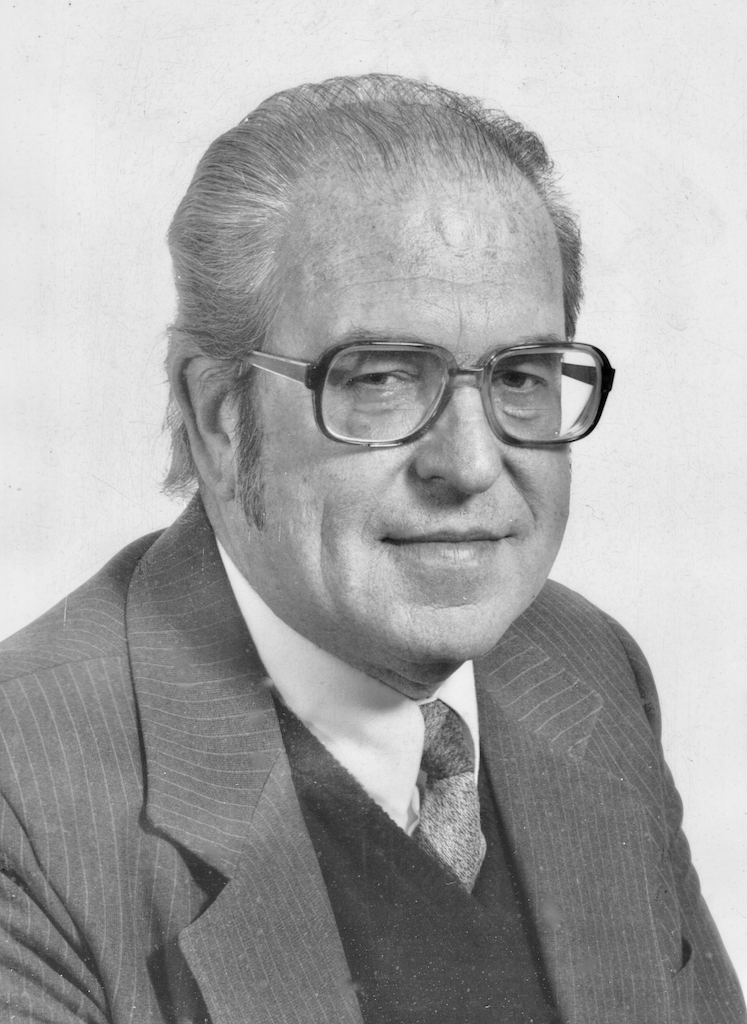
David Starrett, M.D.., a Distinguished Life Fellow of APA, was born in Oakland, Calif. He graduated from high school in Seattle, Wash., and joined the Army at 17 in 1944. He was stationed in Rome, where he met and eventually married Grace Starrett (née Iverson). He did his premed studies at the University of Washington in Seattle and medical studies at Washington University in St. Louis, Mo. After completing his internship at the Highland-Alameda County Hospital in Oakland, Calif., Dr. Starrett moved to Denver, where he began his psychiatric residency at the CU hospital. He graduated in 1957, joining the staff of the Department of Psychiatry. He was board certified in psychiatry and neurology in 1959.
Dr. Starrett worked tirelessly to improve mental health care in Denver. In 1960, he became director of the Mental Health Division of the Denver Department of Health and Hospitals, and the following year he was appointed associate chief of staff for mental health and Behavioral Sciences at the Denver Veterans Hospital. During the 1960s and 1970s he was an original member and later chair of the Governor's Advisory Committee for the development of the Fort Logan Mental Health Center.
At the VA, he started a drug and alcohol program, expanded the outpatient services, and started a day hospital and an emergency psychiatric service. In 1973, he founded and was president of Transition Inc., a halfway house and rehabilitation program for discharged vets. He retired from the VA as deputy chief of staff in 1994.
In 1974 he became director of the inpatient division of Colorado Psychiatric Hospital. He was clinical professor of psychiatry at the University of Colorado Health Sciences Center. He also had a private practice and continued to see private patients until about 10 years before his death.
Dr. Starrett was principal author and recipient of a $12 million Robert Wood Johnson Grant for the development of services for people with chronically mental illness in Denver in 1987. He administered the grant and developed a Citizens Advisory Group. The program became the Denver Mental Health Corporation. He was awarded the Fletcher Gaylord Advocacy Award in 1992 by the Mental Health Association of Colorado for his continuing work to improve psychiatric care and insurance parity.
He was founder, president, and vice president of the Denver Mental Health Center, a private clinic with scaled fees designed to provide low-fee psychotherapy for Denver residents. He served on numerous state and city committees that allowed him to play an early and significant role in the development of psychiatric services in the region. He was founder and chair of the Mental Health Resources Coalition and founder and chair of the Colorado Association for Directors of Psychiatric Inpatient Units.
In appreciation of his work, Starrett was awarded APA’s Warren Williams Award in 1987. He served as an ABPN board examiner, member of the Board of Trustees, and president of the Colorado Psychiatric Society, which honored him with a Lifetime Achievement Award in 2007.
Obituary Submitted by: John Starrett, Dr. Starrett’s son, on January 5, 2021.
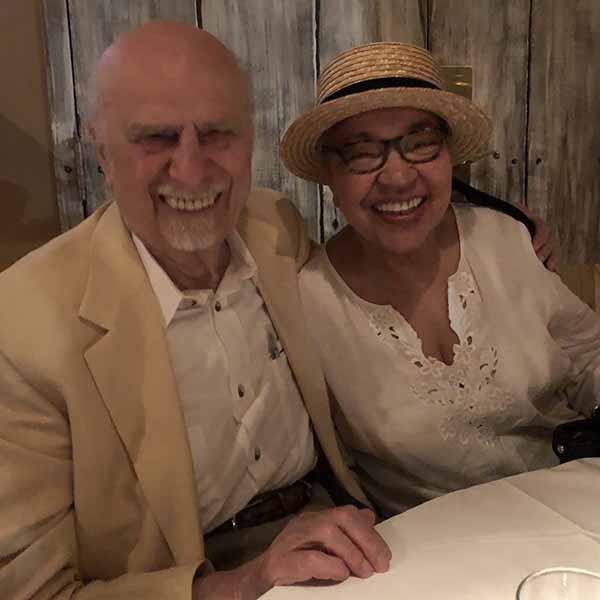
William B. Lukachko, M.D., age 90, passed away on April 22, 2020, due to complications related to COVID-19. Dr. Lukachko was born on June 12, 1929, in Izmir, Turkey, to Hungarian emigres Pal Lukacsko and Terez (Giardini) Lukacsko, the second of their four children. While still a child, Dr. Lukachko and his family moved to Istanbul, where he spent the majority of his youth. He attended Austrian and French schools, both in Turkey, and a boarding school in Hungary during World War II. In 1956, Dr. Lukachko received his medical degree from the University of Istanbul, where he specialized in psychiatry, and began treating Hungarian refugees who had fled the Soviet invasion of their country.
With help from a Catholic charity, Dr. Lukachko immigrated to America in 1958 to begin work as an intern at Holy Name Hospital in Teaneck, New Jersey. He completed his residency at hospitals in Pennsylvania and Ohio before and in 1963 accepted a position as a clinical psychiatrist at Ancora Psychiatric Hospital in Winslow Township, New Jersey. In 1969, Dr. Lukachko relocated to northern New Jersey, where he worked as a dedicated psychiatrist for over 40 years in private practice and at hospitals including Fair Oaks Hospital, St. Clare's Hospital, and Morristown Memorial Hospital, where he was an esteemed member of staff for nearly three decades. Dr. Lukachko was deeply committed to his profession and to his patients. He was a devoted husband, father, and grandfather, a great thinker, and a kind and gentle soul.
Obituary Submitted by: Alicia Lukachko, Dr. Lukachko's daughter, on December 30, 2020.
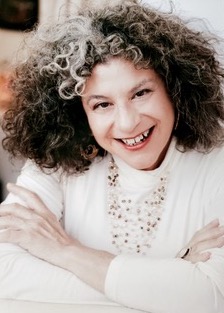
Greatly loved teacher, physician, world traveler, and medicine woman, Sharon K. Melnick, M.D., moved to Klamath Falls, Ore., in 1997 with her husband, Robert Chinook, a medicine man. Together they established a community of healers and performed innumerable rituals for community members at times of grief, celebration, and solstice. They gave people a way to connect intimately, helping numerous couples meet and marry.
Sharon continued these practices after Robert died in March 2014. Dr. Melnick's eclectic practice included energy medicine and acupuncture and grew to include five therapists. She enjoyed saying that she had the "highest office in Klamath Falls" on the sixth floor of the Medical Dental Building.
Sharon was the medical director at High Desert Hospice for numerous years, and in 2019 she moved to Berkeley, Calif., to practice as a psychiatrist and medicine woman in psychedelic medicine. She continued serving the Klamath and Ashland communities online at Transformations Wellness as medical director and psychiatric consultant.
Sharon was also a world traveler, exploring medicine man traditions in Mongolia, Siberia, Russia, South America, and the United States. At age 62, she traveled to Peru and up 17,000 feet to experience the spiritual cleansing tradition of "dipping" in an ice water pond. She attended Burning Man, an annual, nine-day gathering in the Nevada desert, as a medical team member. Sharon used her intellect and thirst for knowledge to increase her capacity as a healer and to advance knowledge in the United States of alternative ways of working with mental and physical illnesses.
The many people who felt healed as a result of Dr. Melnick's therapeutic and spiritual interventions will forever feel gratitude for a better life. Her friends and family will remember Sharon as smart and funny with great strength of character, intense energy, an emotional spirit, and a perfectly radiant smile.
As Sharon was readying herself to pass on after fighting lung cancer for six months, 17 people surrounded her with love, song, poetry, and drumming. As Sharon would say to everyone, "Blessed be." Sharon is survived by her sisters, Saralee Melnick and Sandra Seitz; Sara's children, Thomas Astle, Simon Astle, and Maggie Astle; Sandra's children, Stephanie Brooker and Mark Goldstein; children of Steven Melnick (deceased 1970), David Taffet and Jay Taffet, and many nieces and nephews.
Obituary Submitted by: Sandra Melnick Seitz, Dr. Melnick's sister, on November 12, 2020.
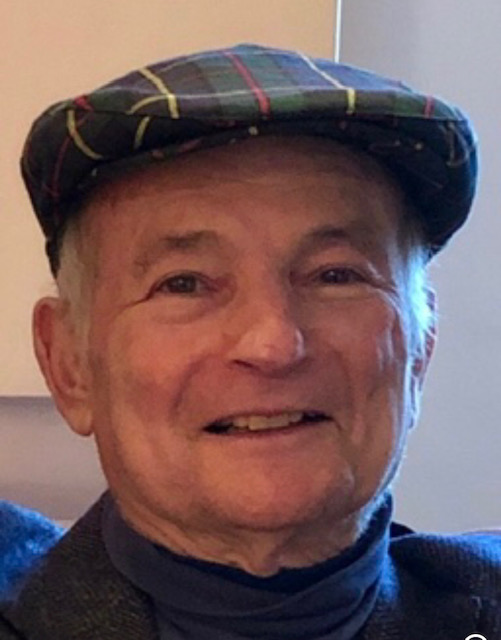
John Michael Ackerman, M.D. (1937-2020), a compassionate psychiatrist and pioneer in integrative psychiatry, succumbed to Lewy Body Dementia.
An only child, John grew up in Milwaukee, Wisconsin. His parents immigrated prior to WWII from Czechoslovakia and Hungary and enriched his childhood with European culture, especially music. His physician father's cardiac crisis at age 44, when John was six, shaped John's life. His father became the subject and co-investigator of a pioneering Warfarin study. John's interest in the psychological impact of chronic illness on patients and their families and his subsequent studies in psychology and psychiatry were a direct result of this trauma.
He graduated from the University of Michigan, and in 1964 received his medical degree from the University of Wisconsin. John's preceptorship in Bruce, Wis. was a highly valued experience. A straight medical internship at Mt. Sinai Hospital in Los Angeles, Calif., was followed by psychiatric residency in San Francisco at UCSF and Mt. Zion hospitals 1965-1968.
From 1968-70 he served the U.S. Public Health Service, Division of Indian Health in Anchorage, Alaska as director of psychiatric services. He visited area hospitals by bush plane, worked with village healers and often utilized short wave radio, the telemedicine of its time. These experiences introduced him to alternative healing methods and the importance of community in supporting mental health.
His pursuit of more training in community mental health brought him to the outstanding program in Ventura County, CA. He also began a part-time private practice in Santa Barbara, Calif. where he resided, turning to full time practice when funds for community mental health were cut. Always at the forefront of innovation, in 1971 he began acupuncture studies. In 1979 he trained in Family Therapy at the Philadelphia Child Guidance Clinic, and in 1981 trained at Lincoln Hospital in the South Bronx learning ear acupuncture for anxiety, trauma, and substance use disorders. He was successful in having acupuncture added to the Santa Barbara Medical Reserve Corps, work eventually incorporated into the national program.
His interest in acupuncture led to him Auricular Medicine, training regularly in France and he was honored for his research by the G.L.E.M. (Lyon Medical Studies Group). For eleven years John travelled to the Netherlands to research subtle energy. He was very proud of editing the book, Light in Shaping Life, with his biophysicist research collaborator. An active member of psychiatric and medical societies, he presented many papers at national and international conferences. He was active in non-profits dedicated to improving health care delivery.
His interest in antibiotic resistant bacteria relative to water quality was representative of his ongoing interest in public health and disease prevention. After retirement, John pursued his love of singing and performed for several years until Alzheimer's Disease began to manifest. He is survived by his wife Ruth, his son David, daughter Dara, daughter-in-law Gabrielle Perrin and grandchildren Amalia Ackerman and Moses Ackerman.
Obituary Submitted by: Ruth Ackerman, Dr. Ackerman's wife, on October 4, 2020.
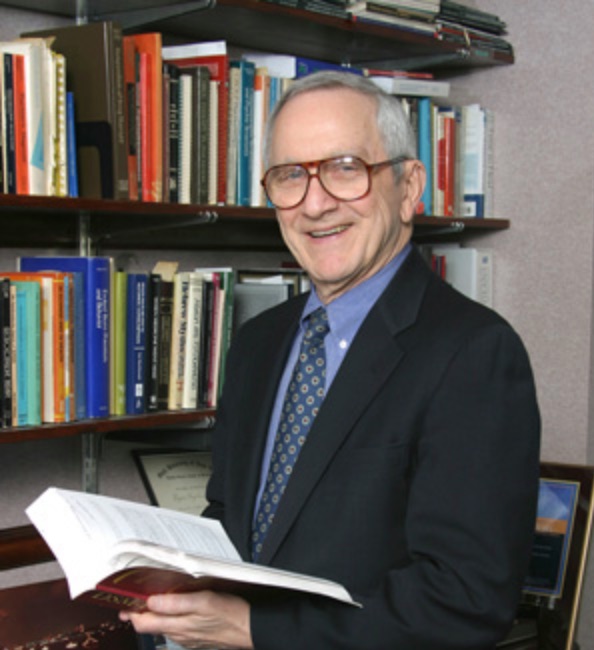
Superman was from Alabama
Dr. Eugene B. Feigelson, a leader in the New York City medical community and committed husband and father, died at home in Orient Point, N. Y. on June 28.
Dr. Feigelson was born in 1930 in a small mining town called Creel Town in Alabama to Latvian immigrants, Beila and Philip. Along with his twin brother, Charlie, and older brother, Harvey, they shared a small home with his Uncle Morris' family located above a dry goods store they owned and operated together. In recurring teachable moments, he liked to remind his own children he didn't have indoor plumbing until age 11.
The family's Jewish identity was central to his upbringing. They kept kosher and filled the home with the sounds of Hebrew and Yiddish language and music. As a young boy, Dr. Feigelson experienced a profound sense of grief as he watched his mother mourn for their many family members killed in the Holocaust. This would instil in him a deep commitment to family and to the Jewish people that would shape the rest of his life.
He and his twin brother were known for both their academic and athletic prowess. Together, they attended the University of Alabama after which they both chose to study medicine. They both became psychiatrists and settled in New York City in the 1950s.
After serving as chief of psychiatry at St. Lukes'-Roosevelt, where he established one of the first psychiatric day hospitals in America, Dr. Feigelson moved to Downstate Medical Center in Brooklyn, where he became a local legend. At Downstate, he served as chairman of psychiatry from 1978 to 1995. Subsequently, he became dean of the College of Medicine until 2006. Between 1997 and 1998, he also served as interim president of Downstate.
As dean of the College of Medicine, Dr. Feigelson was known for his commitment to students. He made a point to have dinner with each incoming student in groups of six. He had a particular concern for students from disadvantaged backgrounds and in that spirit set up a scholarship program, which continues today and bears his name.
Dr. Feigelson was also known for his efforts to establish international exchange among physicians. In the early 1990s, as chair of APA's Council on International Affairs, Dr. Feigelson played a major role in confronting the Soviet Union's use of psychiatry to suppress political dissidents. In 1992, he led a "travelling University" to Eastern Europe, where he took American psychiatric ideas to countries that had been underserved under Soviet rule. He also led successful medical delegations to China, Cuba, Russia, Cambodia, Vietnam, and India and served as honorary chair of a ceremony recognizing African heads of state during a meeting of the U.N. General Assembly.
When he wasn't working, Dr. Feigelson was an avid athlete and competitor. He played tennis and golf, taught himself to sail, and ran the New York marathon at the age of 65. He loved music and was particularly fond of opera. Among his favorite memories of his youth, he recalled volunteering as a super when the Metropolitan Opera visited Birmingham.
Decades ago, one of his children wrote a college application essay titled, "Superman Is From Alabama." In recounting and celebrating his legacy, this title seems like an apt description of who he was. He will be deeply missed but always present in our hearts and memories.
He is survived by his wife, Linda; children Elizabeth (Bennett), Jonathan (Annette), and Michael (Melania); grandchildren Matthew, David, Maya, Nicholas, and Mila; and his dog, Louie.
Obituary Submitted by: Michael Feigelson, Dr. Feigelson's son, on September 5, 2020
Lyle Christopherson, D.O., passed away on Tuesday, July 9, 2019, at Avera McKennan Hospital after a battle with cancer. He was 63. Lyle was born in 1955 to loving parents Mary "Vi" and Orten Christopherson, in Madison, S.D. He is lovingly survived by his five children, Sarah Christopherson, Jessica Christopherson, Melissa Christopherson, Joshua Christopherson, and Amanda Christopherson; four brothers, Mark Christopherson, Gary Christopherson, Lynn Christopherson, Craig Christopherson; and many nieces and nephews, cousins, a grandchild, and extended family.
Lyle grew up in Howard, S.D. Upon graduation from high school, he attended Dakota State University. He joined the U.S. Army in 1978 and served as a medical corpsman and psychiatric technician. Lyle went on to study biology, chemistry, and psychology at the University of South Dakota and attended Kirksville College of Osteopathic Medicine in Kirksville, Mo. He completed a four-year psychiatry residency at the University of California in Fresno and treated political assassins including Charles Manson and Sirhan Sirhan at Atascadero State Hospital. He went on to obtain board certification in forensic psychiatry and neurology. His passion was his family. His passion was his work.
In 2004, Lyle began working at Community Counseling Services in Madison and Huron, S.D. During his years in psychiatry, he focused nearly all of his energy toward improving the lives of an incredible number of people who were ill and suffering. Lyle's legacy continues to live on in each and every one of us who had the pleasure of knowing and loving him.
Obituary Submitted by: William Fuller, M.D., colleague and friend, on July 17 2020
